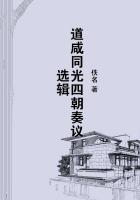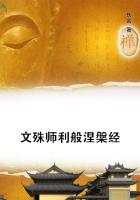Again, at the universities, it is urged, that all goes to form what England values as the flower of its national life, -- a well-educated gentleman. The German Huber, in describing to his countrymen the attributes of an English gentleman, frankly admits, that, "in Germany, we have nothing of the kind. A gentleman must possess a political character, an independent and public position, or, at least, the right of assuming it. He must have average opulence, either of his own, or in his family. He should also have bodily activity and strength, unattainable by our sedentary life in public offices. The race of English gentlemen presents an appearance of manly vigor and form, not elsewhere to be found among an equal number of persons. No other nation produces the stock. And, in England, it has deteriorated. The university is a decided presumption in any man's favor. And so eminent are the members that a glance at the calendars will show that in all the world one cannot be in better company than on the books of one of the larger Oxford or Cambridge colleges." (* 3)(* 3) Huber: History of the English Universities. Newman's Translation.
These seminaries are finishing schools for the upper classes, and not for the poor. The useful is exploded. The definition of a public school is "a school which excludes all that could fit a man for standing behind a counter." (* 4)(* 4) See Bristed. Five Years in an English University. New York. 1852.
No doubt, the foundations have been perverted. Oxford, which equals in wealth several of the smaller European states, shuts up the lectureships which were made "public for all men thereunto to have concourse;" mis-spends the revenues bestowed for such youths "as should be most meet for towardness, poverty, and painfulness;" there is gross favoritism; many chairs and many fellowships are made beds of ease; and 'tis likely that the university will know how to resist and make inoperative the terrors of parliamentary inquiry; no doubt, their learning is grown obsolete; -- but Oxford also has its merits, and I found here also proof of the national fidelity and thoroughness. Such knowledge as they prize they possess and impart.
Whether in course or by indirection, whether by a cramming tutor or by examiners with prizes and foundation scholarships, education according to the English notion of it is arrived at. I looked over the Examination Papers of the year 1848, for the various scholarships and fellowships, the Lusby, the Hertford, the Dean-Ireland, and the University, (copies of which were kindly given me by a Greek professor,) containing the tasks which many competitors had victoriously performed, and I believed they would prove too severe tests for the candidates for a Bachelor's degree in Yale or Harvard.
And, in general, here was proof of a more searching study in the appointed directions, and the knowledge pretended to be conveyed was conveyed. Oxford sends out yearly twenty or thirty very able men, and three or four hundred well-educated men.
The diet and rough exercise secure a certain amount of old Norse power. A fop will fight, and, in exigent circumstances, will play the manly part. In seeing these youths, I believed I saw already an advantage in vigor and color and general habit, over their contemporaries in the American colleges. No doubt much of the power and brilliancy of the reading-men is merely constitutional or hygienic. With a hardier habit and resolute gymnastics, with five miles more walking, or five ounces less eating, or with a saddle and gallop of twenty miles a day, with skating and rowing-matches, the American would arrive at as robust exegesis, and cheery and hilarious tone. I should readily concede these advantages, which it would be easy to acquire, if I did not find also that they read better than we, and write better.
English wealth falling on their school and university training, makes a systematic reading of the best authors, and to the end of a knowledge how the things whereof they treat really stand: whilst pamphleteer or journalist reading for an argument for a party, or reading to write, or, at all events, for some by-end imposed on them, must read meanly and fragmentarily. Charles I. said, that he understood English law as well as a gentleman ought to understand it.
Then they have access to books; the rich libraries collected at every one of many thousands of houses, give an advantage not to be attained by a youth in this country, when one thinks how much more and better may be learned by a scholar, who, immediately on hearing of a book, can consult it, than by one who is on the quest, for years, and reads inferior books, because he cannot find the best.
Again, the great number of cultivated men keep each other up to a high standard. The habit of meeting well-read and knowing men teaches the art of omission and selection.
Universities are, of course, hostile to geniuses, which seeing and using ways of their own, discredit the routine: as churches and monasteries persecute youthful saints. Yet we all send our sons to college, and, though he be a genius, he must take his chance. The university must be retrospective. The gale that gives direction to the vanes on all its towers blows out of antiquity. Oxford is a library, and the professors must be librarians. And I should as soon think of quarrelling with the janitor for not magnifying his office by hostile sallies into the street, like the Governor of Kertch or Kinburn, as of quarrelling with the professors for not admiring the young neologists who pluck the beards of Euclid and Aristotle, or for not attempting themselves to fill their vacant shelves as original writers.
It is easy to carp at colleges, and the college, if we will wait for it, will have its own turn. Genius exists there also, but will not answer a call of a committee of the House of Commons. It is rare, precarious, eccentric, and darkling. England is the land of mixture and surprise, and when you have settled it that the universities are moribund, out comes a poetic influence from the heart of Oxford, to mould the opinions of cities, to build their houses as simply as birds their nests, to give veracity to art, and charm mankind, as an appeal to moral order always must. But besides this restorative genius, the best poetry of England of this age, in the old forms, comes from two graduates of Cambridge.















